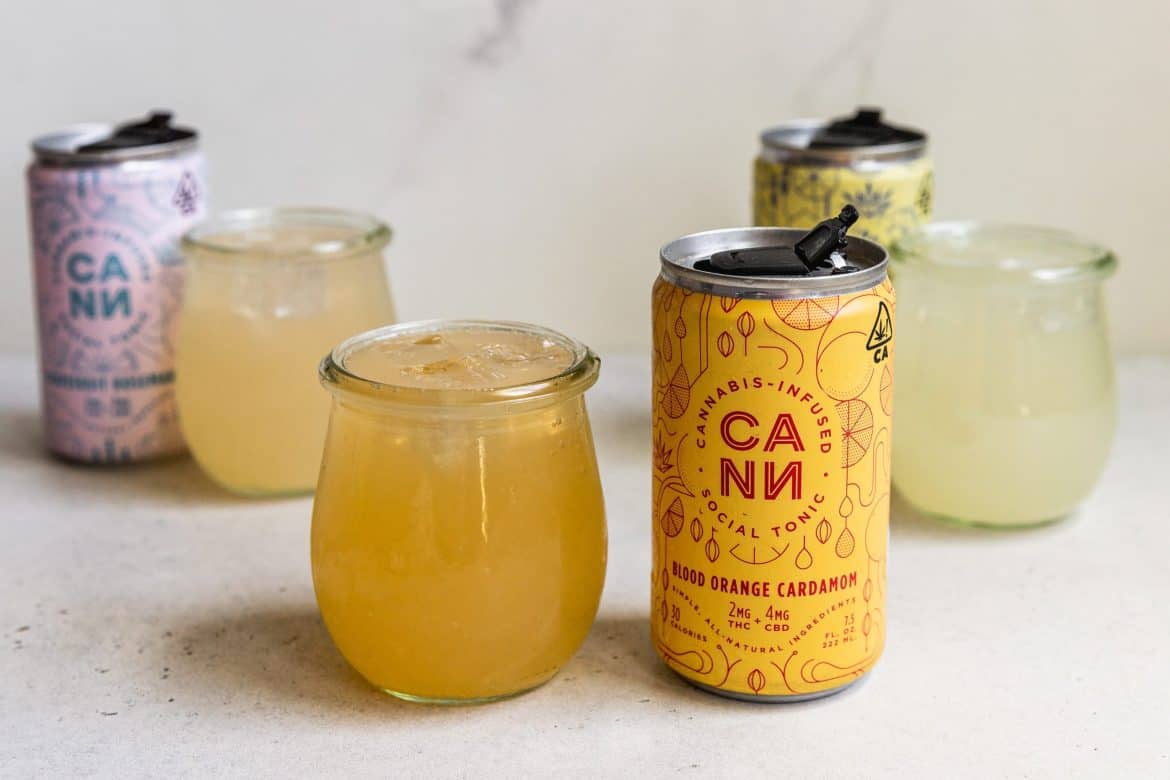Study Finds a Substitution Effect Between Cannabis Drinks and Alcohol
A new large-scale study has found strong evidence that cannabis-infused beverages can reduce alcohol consumption among adults. The research, conducted by the data analytics firm MoreBetter, involved more than 3,000 participants who incorporated cannabinoid beverages into their daily routines.
The study explored what scientists call the “substitution effect”—when consumers replace one substance with another. In this case, alcohol was replaced with drinks containing cannabinoids such as THC, CBD, CBN, and CBG.
After 22 days of observation, participants reported that their daily alcohol use dropped from 32.9% at baseline to just 20.1%—a 12.7 percentage-point decrease. Heavy drinking (defined as three or more drinks per day) fell from 38% to 25%.
Participants Reported Drinking Less and Feeling Better
Overall, 72% of participants agreed with the statement, “I was consuming less alcohol while drinking the study product.” More than half (54%) said their desire or craving for alcohol decreased, and nearly half (49%) said they would consider using the cannabis beverage as a regular replacement for alcohol.
Notably, 76% reported feeling less intoxicated compared to drinking alcohol—while still experiencing relaxation and mood benefits.
Wellbeing, Sleep, and Pain Levels Improved
In addition to drinking less, participants also reported significant improvements in overall wellbeing. According to the MoreBetter report, average wellbeing scores rose by 23% by the end of the study.
On days when participants used cannabis beverages, they experienced an 18% reduction in stress, an 11% decrease in pain, and 7% longer sleep duration compared to non-use days. These findings suggest that cannabis drinks may not only act as a substitute for alcohol but also serve as a functional wellness product.
Research Details and Sponsoring Brands
Participants were provided with beverages from 20 different products, each containing various combinations of cannabinoids. The study was sponsored by more than a dozen hemp and cannabis brands—including BRĒZ, Cantrip, Nowadays, Stiiizy, 1906, and Love Yer Brain—but the sponsors had no editorial control or influence on the data analysis.
The research relied on self-reported daily and weekly questionnaires to measure alcohol use, mood, sleep quality, and pain levels over the study period.
A Growing Challenge for the Alcohol Industry
This study adds to a growing body of evidence suggesting that cannabis-based drinks are emerging as a serious alternative to traditional alcoholic beverages. As legalization expands and consumer awareness grows, many adults are turning to THC- and CBD-infused products as a way to relax without the negative effects of alcohol.
For the alcohol industry, this represents a significant market shift—one that could reshape social drinking habits over the next decade.
Read Also on The Cannex
- Cannabis Aroma Glossary: Debunking the Terpene Myth
- THC Beverages as an Alcohol Alternative — 2025 Trends
- Rare Cannabis Compound CBGD and Its Anti-Inflammatory Benefits for Skin
FAQ — Frequently Asked Questions
What is THC?
THC (tetrahydrocannabinol) is the main psychoactive compound in cannabis. It produces a sense of euphoria or relaxation and can also have pain-relieving and anti-nausea effects.
What is CBD?
CBD (cannabidiol) is a non-psychoactive cannabinoid known for its calming, anti-inflammatory, and anxiety-reducing properties. It doesn’t cause a “high.”
What are CBN and CBG?
CBN (cannabinol) is a mildly sedative cannabinoid that supports better sleep and relaxation.
CBG (cannabigerol) is a precursor compound to other cannabinoids and is being researched for its potential antibacterial and neuroprotective benefits.
What are cannabis-infused beverages?
Cannabis drinks are ready-to-drink products infused with cannabinoids such as THC or CBD. They often come as sparkling waters, mocktails, teas, or wellness beverages.
How are cannabis beverages made?
The process involves extracting cannabinoids from the cannabis plant, converting them into water-soluble nanoemulsions, and blending them into a drink base—usually flavored water or juice. These products are made under strict quality and safety regulations in regions where cannabis is legal.

